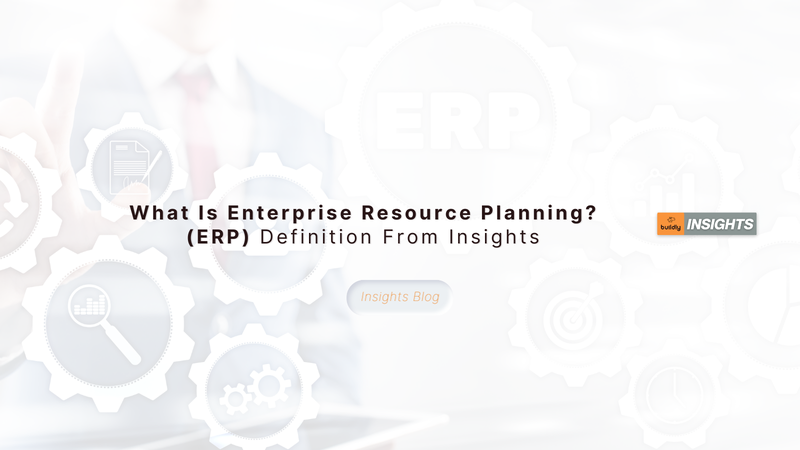What Is Enterprise Resource Planning? (ERP) Definition From Insights

- admin
- April 3, 2023
Enterprise Resource Planning (ERP) is a comprehensive business management system that helps in the automation and integration of an organization's essential business operations. Finance, accounting, human resources, supply chain management, and customer relationship management are a few examples of these processes.
The goal of ERP systems is to give businesses a single source of truth for all of their data, enabling them to make more informed decisions, increase productivity and efficiency, and cut costs.
- ERP software is made up of a number of connected modules, each of which supports a different business process. For instance, general ledger, accounts payable, accounts receivable, fixed assets, and financial reporting are frequently included in finance modules. Purchasing, order management, and inventory management are examples of supply chain modules.
- The ability to concentrate all business data in one system is one of the main advantages of ERP. This enables companies to obtain real-time data and get a comprehensive understanding of their operations. Businesses can manage their finances, improve their supply chain, and offer better customer service with a deep understanding of all their data.
- The capacity of ERP to automate everyday operations and processes is another significant benefit. Employees may have more time to devote to more strategic duties, including enhancing the customer experience, creating new goods, or entering new markets, as a result of this.
- Moreover, ERP systems can benefit firms by fostering better departmental coordination and communication. It is simpler to share information and work together to achieve shared objectives when all data is contained in one system. This can promote a more collaborative and inventive culture and assist in the removal of organizational silos.
- Also, setting up an ERP system can be difficult and time-consuming. It requires time, financial, and resource commitment. Also, it's important to select an ERP system that supports the objectives and needs of your company.
Despite various difficulties, many firms find that ERP is well worth the investment. ERP systems can boost a company's productivity, cut costs, and enhance customer service. ERP has evolved into a key tool for companies of all sizes and in all industries in the highly competitive business environment of today, where every advantage matters.
Enterprise Resource Planning, as mentioned before, is a potent business management tool that aids firms in integrating and automating their fundamental business procedures. ERP gives businesses a single source of truth for all of their data, enabling them to save costs, increase efficiency and production, and make better decisions. Despite the difficulties involved in putting an ERP system in place, many companies find the advantages to be substantial and well worth the cost.

